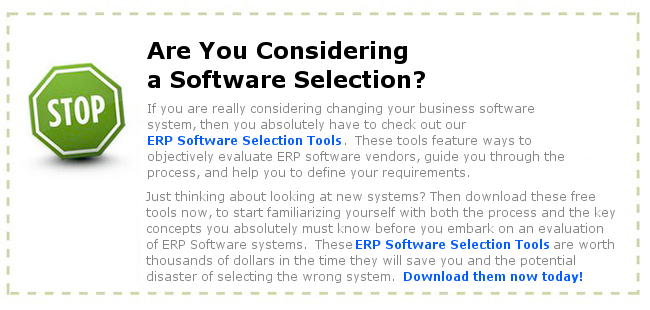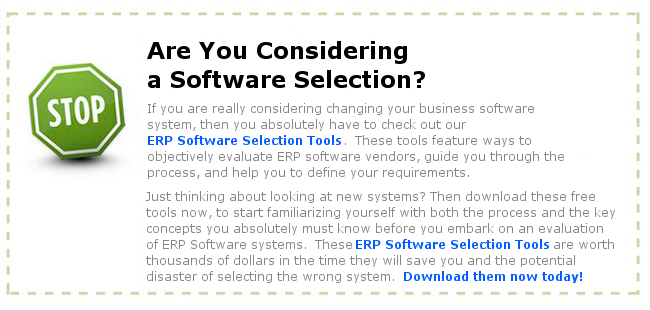In reading this article on MS and ERP, the question came up “Is Microsoft really going after the smaller companies with their Dynamics ERP offerings?” So far all of the indications are that they are targeting SAP and Oracle as their competition. Is this a little arrogant of Microsoft, trying to compete against the established Tier 1 vendors in ERP? Oh… Yeah… they’re Microsoft. The same company that went after Lotus 123, Netscape, Word Perfect, and others. Find a niche that uses software, exploit it with the fact that MS software runs well on MS Windows, it has a familiar look and feel to it, and give it away for free or market the hell out of it.
So far that is not what has happened with Dynamics, but it is still early. What has happened so far is that they have completed wave 1 of their project Green integration. They have built a common user interface for all the Dynamics products (AX-Axapta, NV-Navision, GP-Great Plains, SL-Solomon). They have also built common database tools. Now Mr. Gates is outlining a future with CRM and Dynamics that integrates to the “Live” tools on the web, including MS CRM integration to the Live website for targeted advertising. Add to that that 2007 Office is going to have intimate linkages into and from Dynamics. The user interface is MS Outlook. Based on MS CRM, which essentially now plugs into Outlook, Dynamics will soon do the same. So you will have a single, familiar Desktop tool for managing Email, Customer Relationships, and Enterprise Data. All with the familiar Microsoft look and feel plus links into Microsoft Live.
Sounds irresistable for a midsized company who wants simplicity and flexibility. However, now your entire enterprise is dependent upon a single vendor for the Back Office (servers and database), Front Office tools (MS Office), and your enterprise data.
Further, as it stands right now, Microsoft is taking a familiar approach of providing a development platform for partners to extend. In Dynamics, the code is flexible with many MS partners building niche add-ins to the products. As we understand it, the core product of Dynamics works fine, but doesn’t drill to deep into any industry. The Microsoft Industry Builder addresses that by having MS VARS (Value Added Resellers) become specialists into certain industries and then developing the vertical software necessary on top of the Dynamics product. Yes, it is integrated and native, being built with the Dynamics tool set. Yes, it is supported. If anything happens to the VAR, then as long as it is a Microsoft certified Industry Builder solution, you get the Microsoft support for that vertical extension.
So is SAP and Oracle out of reach? Based on history, no they are not. And based on history, they should be preparing for a real fight.

